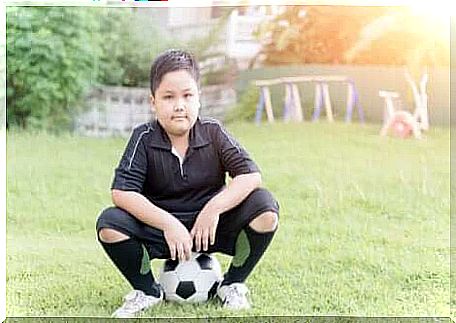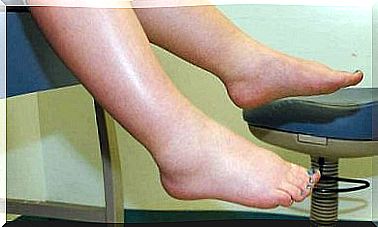Habits To Instill In Children
Habits to instill in children are fundamental for their growth. Here are some ideas for encouraging children to be beautiful people.

One of the most difficult tasks for parents concerns the habits to instill in children so that they become beautiful people. It is indeed important to instill healthy and positive habits in them so that they can manage in this world and do good around them. This is, without a doubt, one of the main responsibilities of adults towards children.
Habits are behaviors acquired by repeating identical or similar acts. According to psychology, a habit can range from a gesture to the satisfaction of personal needs. They are a fundamental part of the learning that is the responsibility of parents.
How to instill habits or routines in children?
The main thing is to provide safety for children. Bring them the certainty of knowing what comes after each activity: eat, brush their teeth, sleep. Provide them with peace of mind as well as foresight. This makes children feel better, more secure and more internally secure.
It is easier to instill habits in children if everyone at home follows the same pattern of behavior. Mom, dad, and siblings know what to do and what their role is in the family. It is important to give the child a role, by promoting his collaboration.
An essential point is that the daily routine and actions are stable. In her work on “ The Importance of Habits and Routines in 3-Year- Olds,” Bedia says that habits help children to be independent. Thanks to them, they have more tools to cope with everyday life.

Habits to instill in children
The ideal is to always learn the good habits and to explain why the bad ones are to be avoided. It is a crucial task for parents and a key element in the life of the child. Here are some of the habits that can help you in your role as a parent.
1. Don’t skip breakfast or any other meal
Breakfast is undoubtedly the most important meal of a child’s day. Indeed, there should be a minimum of three meals per day. But it is the first meal of the day that provides the energy necessary to face the daily grind.
If the child does not eat breakfast, the body goes into metabolic lethargy. What we know in the technological world as an energy saving mode . Concentration then becomes difficult and premature fatigue may appear.
2. Read every day
Reading sharpens the senses, stimulates the exchange of knowledge, promotes concentration and empathy. In addition to bringing a broader vision of the world.
For daily reading, parents can read a story or novel before bed, leaving the plot for later. The child must show real interest and not be forced.
3. Look at food labels
Following a healthy diet includes reading the labels of the foods we eat. This way we know what we are eating, the amounts of sugars and calories, the expiry date and preparation date, the ingredients and additives.
Moreover, by reading the ingredients and nutritional data, we can compare with other products and know which are the most beneficial.
4. Instill habits in children: Be understanding
When your child is impatient or angry with someone else’s behavior, remind them that they are not perfect either and ask if they would like to be treated that way.
Teach him that humans sometimes have weaknesses in certain activities, but that doesn’t make them less good. Show him that, if he has facilities in one area and others not, he can help individuals in difficulty.
5. Get enough sleep
Sleep hours depend on age. Between the ages of 3 and 5, children need 10 to 13 hours of sleep a day. Between 6 and 13 years old, they must sleep between 9 and 11 hours a day. If they don’t get enough sleep their daily performance decreases, they may have difficulty thinking clearly and making decisions.
6. Limit time on screens
When you allow them to watch TV, to be on the phone, computer or tablet, it is essential to regulate the time they spend in front of the screen. Set schedules using parental controls.
7. Perform a physical or educational activity
From an early age, you can register your children for an activity outside of school. For example, dancing, martial arts, swimming or archery. If your little one is not good at physical activities, you can opt for chess, foreign language, piano or painting lessons.

8. Wash your hands
Handwashing goes beyond a rule of conduct. Before eating or after going to the bathroom, this act prevents contamination and will keep your child healthy.
Habits instilled in children mirror those of their parents
Remember that children mirror their parents and learn very quickly. Habits are learned through repetition and watching others do it. By teaching them, you are not only a good parent, but also a human being with a big heart.
Finally, don’t be discouraged along the way. It is a long road that does not stop. The main thing is the process and the consciousness of forming human beings for the world of tomorrow.









